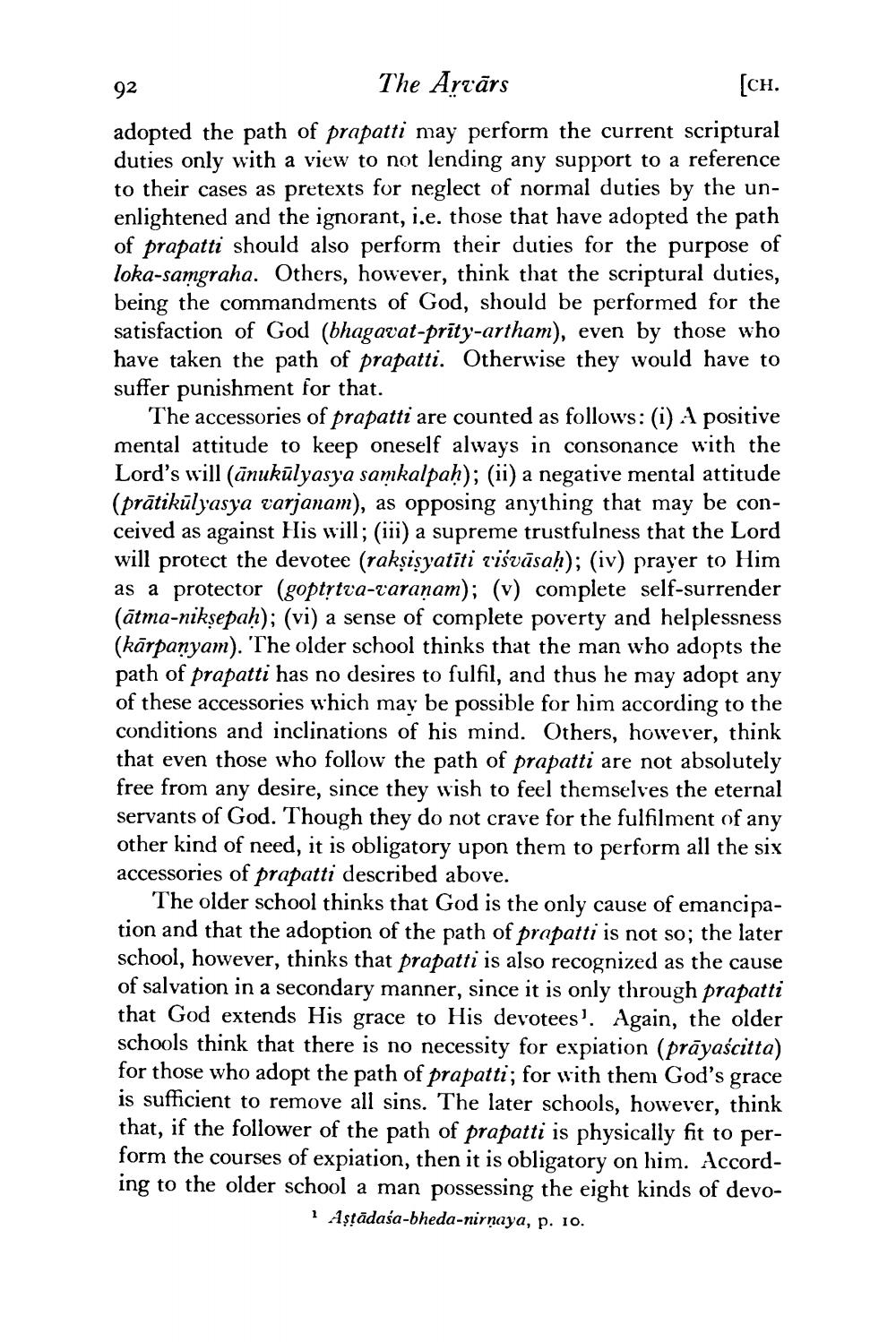________________
92
The Artārs
[CH. adopted the path of prapatti may perform the current scriptural duties only with a view to not lending any support to a reference to their cases as pretexts for neglect of normal duties by the unenlightened and the ignorant, i.e. those that have adopted the path of prapatti should also perform their duties for the purpose of loka-samgraha. Others, however, think that the scriptural duties, being the commandments of God, should be performed for the satisfaction of God (bhagavat-prīty-artham), even by those who have taken the path of prapatti. Otherwise they would have to suffer punishment for that.
The accessories of prapatti are counted as follows: (i) A positive mental attitude to keep oneself always in consonance with the Lord's will (ānukūlyasya samkalpaḥ); (ii) a negative mental attitude (prātikālyasya varjanam), as opposing anything that may be conceived as against His will; (iii) a supreme trustfulness that the Lord will protect the devotee (rakṣiṣyatīti viśvāsaḥ); (iv) prayer to Him as a protector (goptytva-taraṇam); (v) complete self-surrender (ātma-niksepaḥ); (vi) a sense of complete poverty and helplessness (kārpanyam). The older school thinks that the man who adopts the path of prapatti has no desires to fulfil, and thus he may adopt any of these accessories which may be possible for him according to the conditions and inclinations of his mind. Others, however, think that even those who follow the path of prapatti are not absolutely free from any desire, since they wish to feel themselves the eternal servants of God. Though they do not crave for the fulfilment of any other kind of need, it is obligatory upon them to perform all the six accessories of prapatti described above.
The older school thinks that God is the only cause of emancipation and that the adoption of the path of propatti is not so; the later school, however, thinks that prapatti is also recognized as the cause of salvation in a secondary manner, since it is only through prapatti that God extends His grace to His devotees'. Again, the older schools think that there is no necessity for expiation (prāyaścitta) for those who adopt the path of prapatti; for with them God's grace is sufficient to remove all sins. The later schools, however, think that, if the follower of the path of prapatti is physically fit to perform the courses of expiation, then it is obligatory on him. According to the older school a man possessing the eight kinds of devo
1 Aştādaśa-bheda-nirnaya, p. 10.




